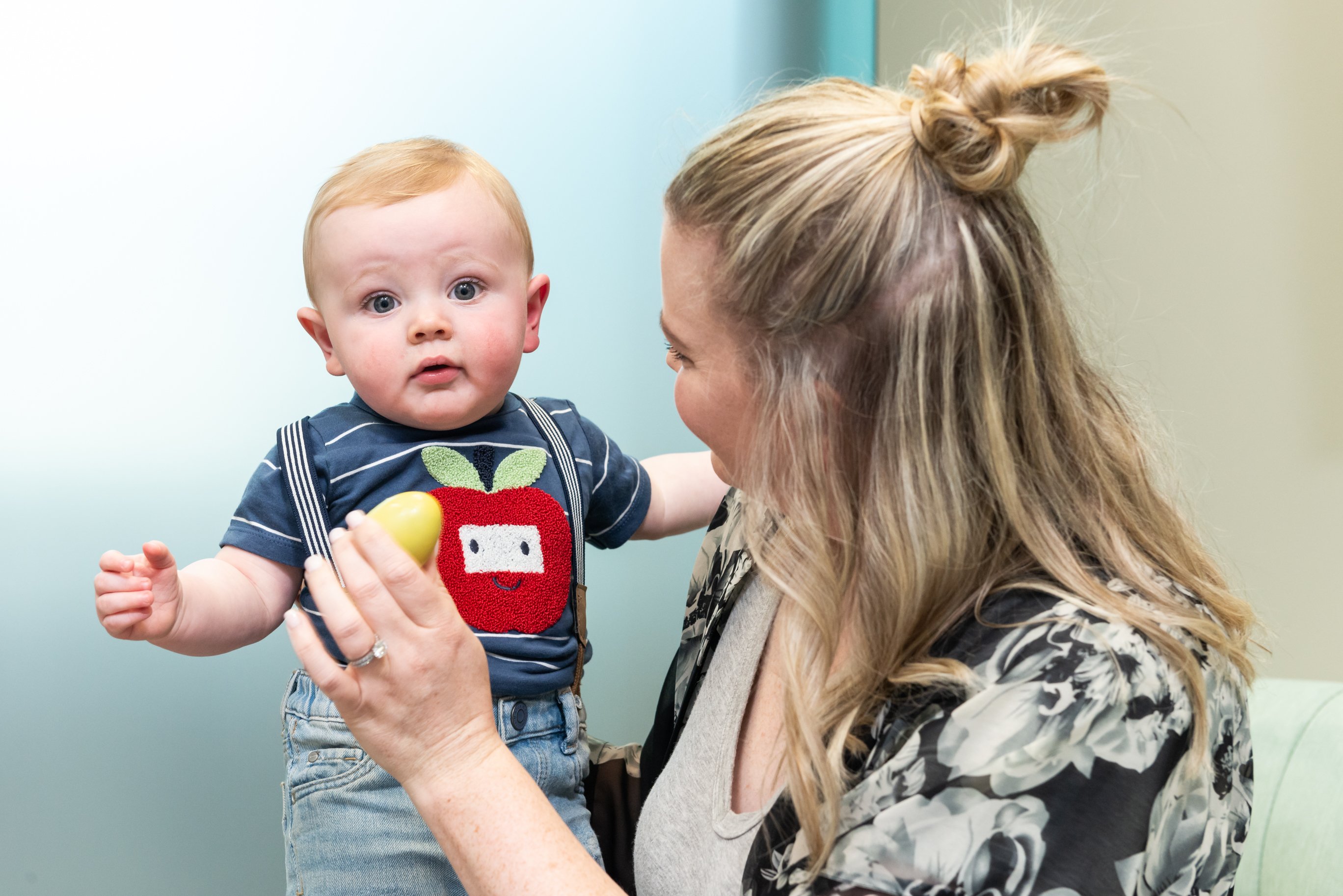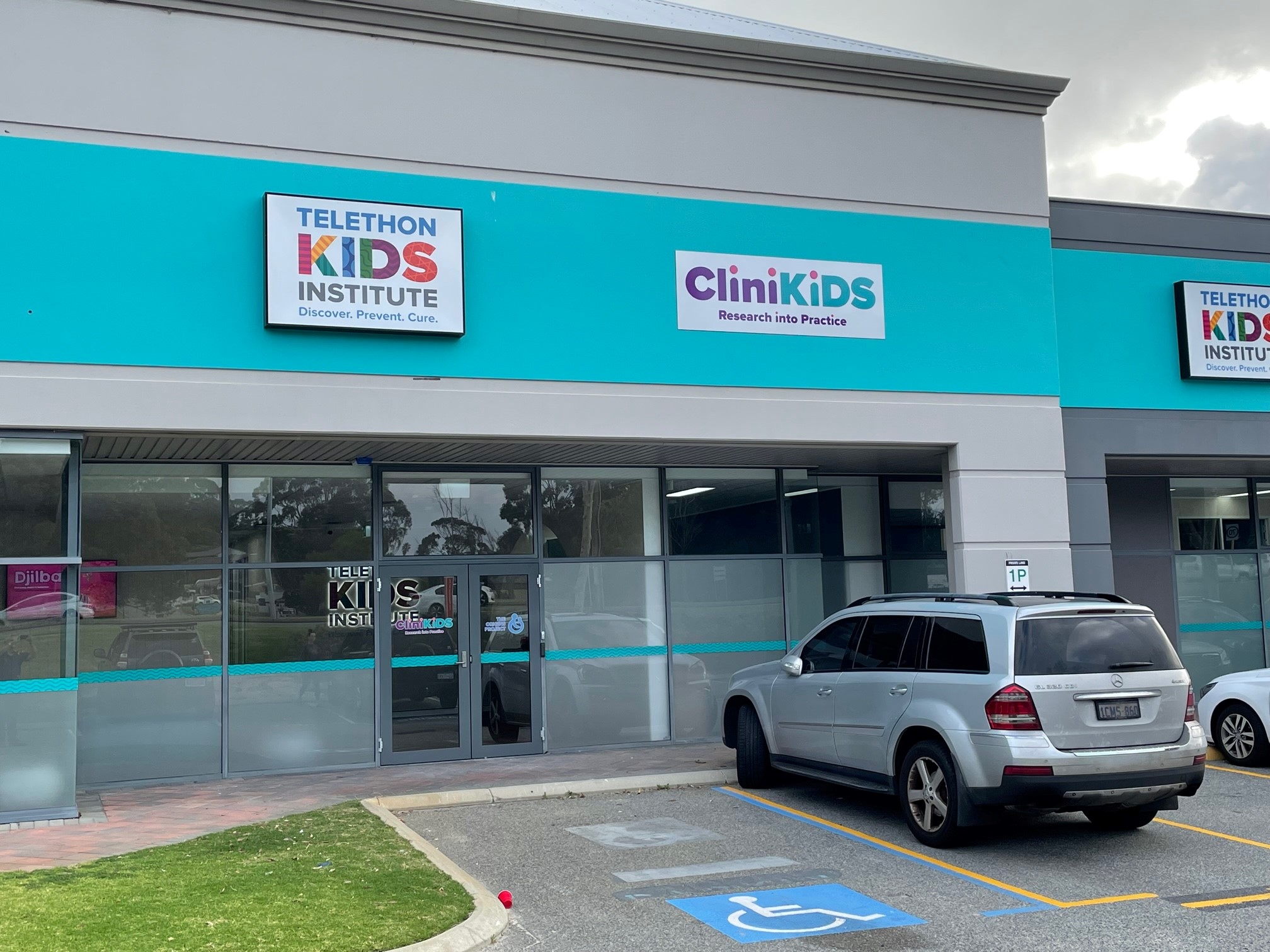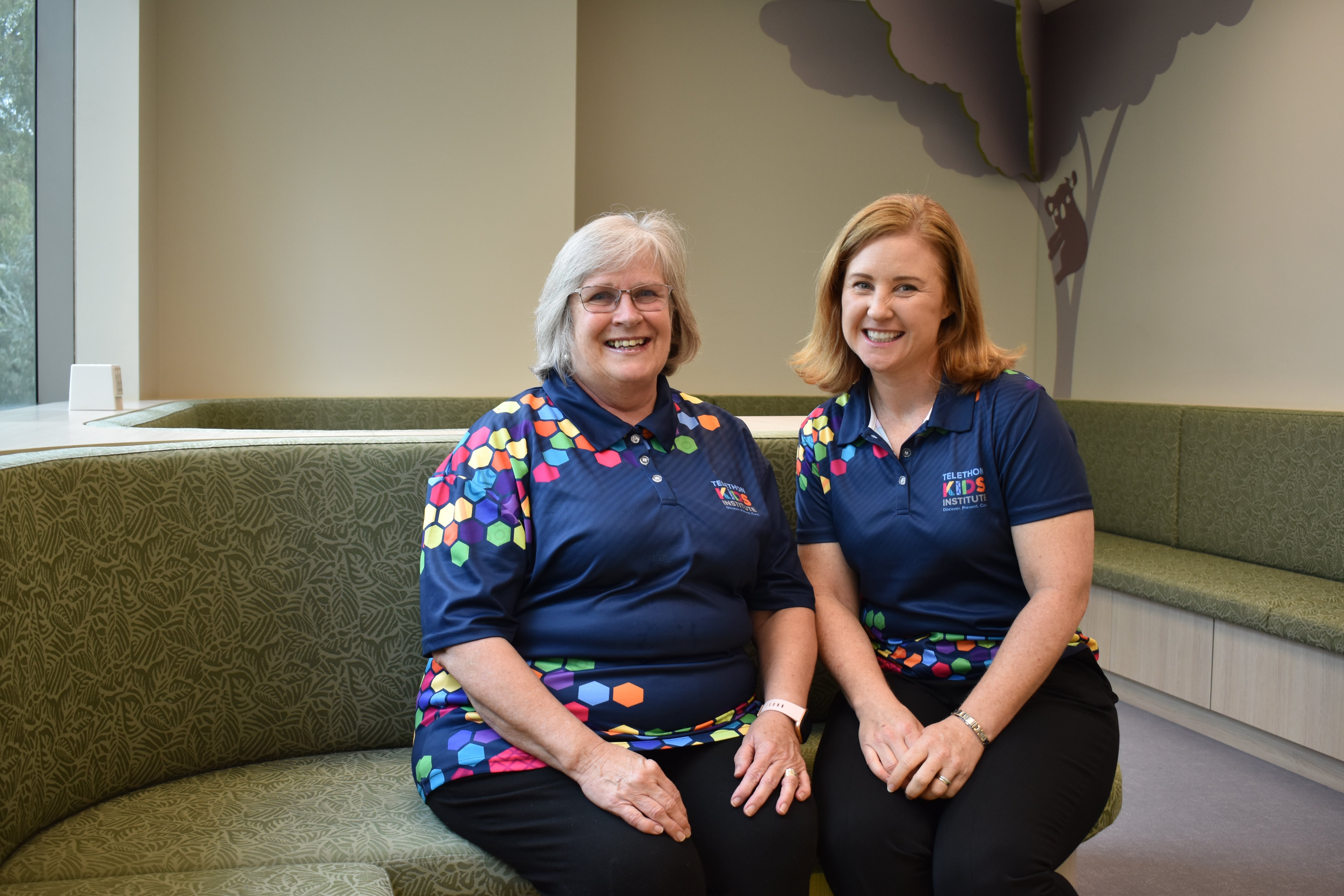Search

News & Events
Client survey resultsIn March we emailed all active clients a survey. The purpose of the survey was to understand how you see our service; understand what was important to you; find out what you would change, and see how likely you were to recommend or refer us.

News & Events
Inklings at CliniKidsInklings is a new program for babies aged 6-18 months who are showing early differences in their social interaction and communication development.

News & Events
Joondalup clinic updateOur new Joondalup clinic opened in late September and has been firing on all cylinders ever since. CliniKids Joondalup has welcomed about 40 new families into the service since opening, with approximately 52 therapy and research appointments scheduled weekly onsite.

News & Events
Clinic shutdown datesPlease note that both the Subiaco and Joondalup clinics will shut down for the Christmas and New Year period from Friday, December 23, through to Wednesday, January 4, inclusive. The clinics will re-open on Thursday, January 5, 2023.

News & Events
New team members!CliniKids recently welcomed Gayle, Tarryn and Emma to the clinical team. The clinicians will be located out our new Joondalup clinic, which will be welcoming families in Term 4.
Research
Feasibility of a 2-minute eye-tracking protocol to support the early identification of autismWe tested the potential for Gazefinder eye-tracking to support early autism identification, including feasible use with infants, and preliminary concurrent validity of trial-level gaze data against clinical assessment scores. We embedded the ~ 2-min 'Scene 1S4' protocol within a comprehensive clinical assessment for 54 consecutively-referred, clinically-indicated infants (prematurity-corrected age 9-14 months).

News & Events
Therapy for babies with signs of autism cuts long-term disability costsNew research evaluating the potential cost savings of a therapy for babies displaying early autism signs has predicted a three dollar return to Australia’s National Disability Insurance Scheme (NDIS) for every dollar invested in therapy.
Research
The Utility of Natural Language Samples for Assessing Communication and Language in Infants Referred with Early Signs of AutismNatural Language Sampling (NLS) offers clear potential for communication and language assessment, where other data might be difficult to interpret. We leveraged existing primary data for 18-month-olds showing early signs of autism, to examine the reliability and concurrent construct validity of NLS-derived measures coded from video-of child language, parent linguistic input, and dyadic balance of communicative interaction-against standardised assessment scores. Using Systematic Analysis of Language Transcripts (SALT) software and coding conventions, masked coders achieved good-to-excellent inter-rater agreement across all measures.
Research
Interactions between the lipidome and genetic and environmental factors in autismAutism omics research has historically been reductionist and diagnosis centric, with little attention paid to common co-occurring conditions (for example, sleep and feeding disorders) and the complex interplay between molecular profiles and neurodevelopment, genetics, environmental factors and health. Here we explored the plasma lipidome in 765 children (485 diagnosed with autism spectrum disorder (ASD)) within the Australian Autism Biobank.
Research
An Evaluation of the Overall Utility of Measures of Functioning Suitable for School-Aged Children on the Autism Spectrum: A Scoping ReviewA diagnosis of an autism spectrum condition (autism) provides limited information regarding an individual’s level of functioning, information key in determining support and funding needs.
